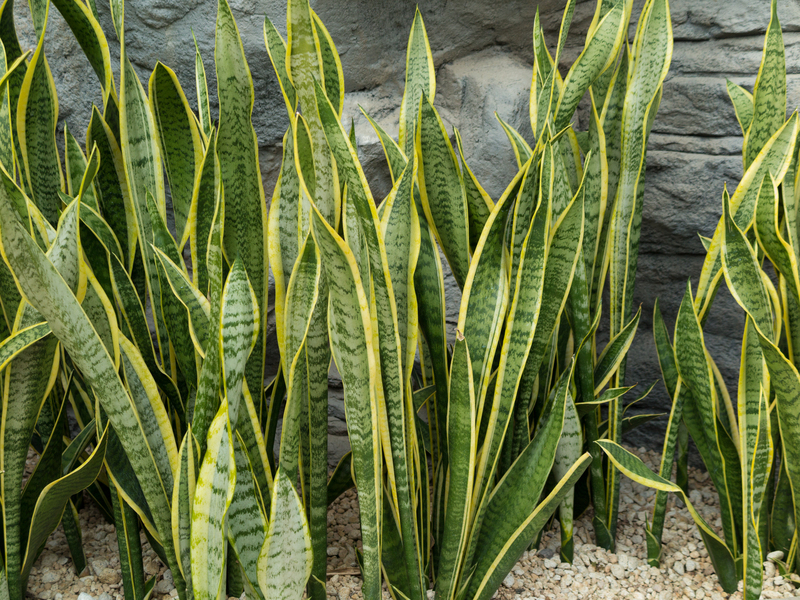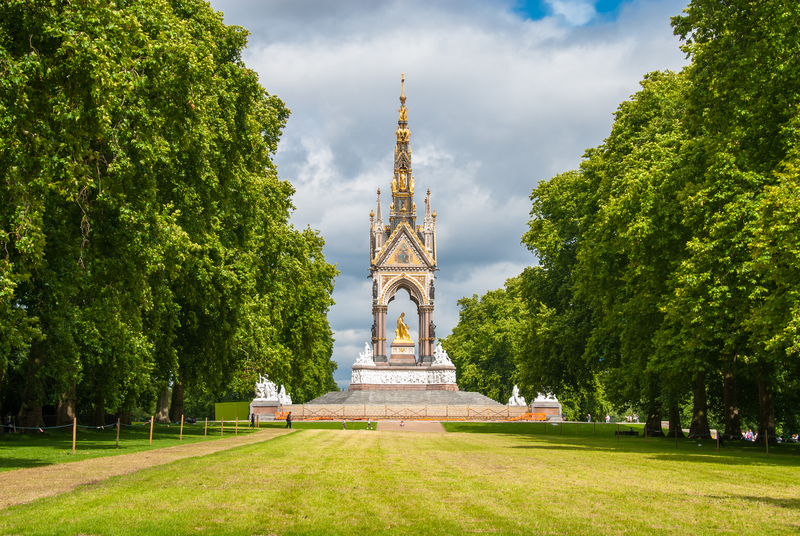Gardening for beginners: 9 tips you can't miss
Posted on 02/10/2025
Gardening for Beginners: 9 Tips You Can't Miss
Have you ever dreamed of growing your own vegetables, herbs, or flowers but didn't know how to start? Don't worry--you're not alone! Gardening for beginners can seem challenging, but with the right tips, you'll be harvesting fresh produce or admiring vibrant blooms in no time.
In this comprehensive guide to gardening for beginners, we'll share essential gardening advice, practical steps, and seasoned tips that will help set up your first garden for success. These beginner-friendly gardening secrets will help you avoid common pitfalls and enjoy a rewarding, relaxing, and productive hobby. Whether you want to start a vegetable garden, nurture ornamental plants, or simply brighten your balcony with potted blooms, these 9 gardening tips are essential--you really can't afford to miss them!
Why Start Gardening?
Before we dive into the top gardening for beginners' tips, it's worth knowing why gardening is such a great activity:
- Health Benefits: Gardening can reduce stress, promote physical activity, and offer access to fresh, healthy produce.
- Mental Well-being: Spending time with plants can improve mood and concentration.
- Environmental Impact: Growing your own food helps reduce carbon footprint and supports local pollinators.
- Savings: Home-grown fruits, vegetables, and herbs can be much cheaper than store-bought alternatives.

Your Guide to Gardening for Beginners: 9 Unmissable Tips
Ready to roll up your sleeves? Here are the nine gardening tips you need to kick off a thriving beginner garden. Each tip offers actionable advice to maximize your success as a novice gardener.
1. Start Small and Choose the Right Spot
Don't get overwhelmed! The best gardening beginners' tip is to start small. Pick a manageable space, like a pair of raised beds, a single flower border, or a series of patio containers. Small gardens are easier to maintain and less time-consuming to weed, water, and monitor.
- Observe Your Yard: Notice which areas get full sun, partial sun, or shade throughout the day.
- Soil Matters: Choose a spot with healthy, well-draining soil. Most plants need at least 6 hours of sunlight per day.
- Accessibility: Make sure your chosen area is easy to reach with a garden hose or watering can.
Tip: If space is limited, container gardening for beginners is an excellent way to get started on patios or balconies.
2. Know Your Climate and Growing Zone
Every plant has specific requirements for sunlight, temperature, and rainfall. One of the first steps to successful beginner gardening is to determine your USDA Hardiness Zone. This will help you choose plants suited for your climate.
- Find Your Zone: Visit the USDA Plant Hardiness Map (for US gardeners) or check similar resources in your region.
- Read Plant Labels: Seed packets and plant tags include recommended zones and sun requirements.
- Local Knowledge: Visit a local nursery to get plant recommendations that thrive in your area.
3. Enrich and Prepare Your Soil
Healthy soil is the backbone of every successful garden. Start by understanding what type of soil you have: sandy, clay, silt, or loam. A soil test kit from a garden center can help you identify nutrient levels and pH.
- Compost: Add organic compost to improve soil structure and provide nutrients.
- Mulch: Use mulch for beginners to retain moisture, prevent weeds, and regulate soil temperature.
- Drainage: Avoid soggy spots; most plants dislike waterlogged conditions.
Tip: Raised beds or containers offer great control over soil quality for those new to gardening.
4. Pick Easy, Productive Plants for First-Time Gardeners
Choosing the right plants is critical for beginner gardening success. Some plants are easier to grow and care for than others, making them perfect choices for new gardeners.
- Vegetables: Lettuce, radishes, green beans, and cherry tomatoes are forgiving and quick to harvest.
- Herbs: Basil, chives, parsley, and thyme thrive in containers and beds.
- Flowers: Marigolds, sunflowers, calendula, and zinnias are hardy and add instant color.
- Native Plants: Always consider local species; they're adapted to your climate and easier to grow.
Start with seeds or small starter plants from local nurseries. Avoid fussy or exotic varieties until you gain more experience.
5. Water Wisely: Do's and Don'ts
Overwatering and underwatering are two of the most common beginner gardening mistakes. Plants need just the right amount of moisture to thrive.
- Consistent Watering: Most gardens benefit from about 1 inch of water per week. Early morning is the best time to water.
- Soil Check: Stick your finger a couple of inches into the soil. If it feels dry, it's time to water.
- Avoid Leaves: Water the soil, not the leaves, to prevent disease and mildew.
- Mulch Magic: Mulching keeps soil moist and reduces the need for constant watering.
Tip: Group plants with similar water needs together for more efficient garden watering.
6. Learn How to Weed and Prevent Pests
Weeds compete with your plants for nutrients and water, while pests can quickly decimate tender seedlings. Gardening for beginners means learning to get a handle on both!
- Weed Regularly: Check your garden for weeds every few days and remove them early, roots and all.
- Barrier Methods: Use mulch, landscape fabric, or cardboard to block light and prevent weed growth.
- Pest Prevention: Inspect plants for holes, sticky residue, or discolored leaves.
- Natural Solutions: Encourage ladybugs, lacewings, and birds; use neem oil or insecticidal soap if needed.
Tip: Avoid chemical pesticides when starting your garden for a healthier, eco-friendly environment.
7. Feed Your Plants with the Right Nutrition
Just like us, plants need food. The nutrients in your soil are finite, so regular feeding is essential for growth and fruiting, especially for heavy-feeders like tomatoes, squash, or roses.
- Organic Fertilizer: Compost, worm castings, or manure help build healthy soil.
- Read Instructions: If using store-bought fertilizer, always follow label recommendations for amounts and frequency.
- Feed at the Roots: Apply fertilizer around the base of the plant, not on the foliage.
Tip: Use slow-release granular fertilizers for less frequent applications--perfect for newbie gardeners.
8. Practice Patience: Track Progress and Learn
Beginner gardening involves a lot of learning. Each plant, season, and even weather pattern may present new challenges. Keep a garden journal to record what you planted and when, what worked well, and what you'd change next time.
- Don't Give Up: Every gardener loses a few plants. Learn from your mistakes and ask for advice from local gardeners or online communities.
- Track Results: Note down seed varieties, planting dates, watering schedules, and fertilization.
- Celebrate Wins: Take photos and enjoy each new blossom or harvest, however small!
Remember: Gardening is a journey, not a race!
9. Enjoy and Get Involved
Lastly, have fun! Gardening is about experimentation, beauty, fresh food, and time spent outdoors. Get the family involved, swap seeds with friends, or volunteer at a local community garden for more inspiration and knowledge.
- Join Gardening Groups: In-person or online groups offer support and a wealth of wisdom for beginners.
- Explore: Visit public gardens, read books, and watch gardening channels for fresh ideas.
- Share Your Harvest: Gift flowers or veggies to neighbors and spread the gardening bug!

Common Questions About Gardening for Beginners
What basic gardening tools do beginners need?
- Hand trowel (for digging and planting)
- Pruning shears (for deadheading and trimming)
- Watering can or hose
- Gardening gloves
- Spade and rake (for larger beds)
- Kneeling pad (for comfort)
When is the best time to start a new garden?
The best time to start gardening for beginners is spring when the soil warms up and there's no longer a risk of frost. Some hardy vegetables can go in earlier, while others (like tomatoes or peppers) need warmer weather. Always check your plant's specific requirements!
Is it easier to start from seeds or young plants?
For absolute beginners, starting with young plants ("transplants" or "starts") from a local nursery is often easier. As you gain experience, try growing from seed for greater plant variety and savings.
Conclusion: Your Beginner Gardening Adventure Starts Now!
With these 9 gardening tips for beginners--from choosing your garden spot to celebrating your first harvest--you're set for a rewarding, blooming adventure. Gardening for first-timers may seem intimidating, but remember: every experienced gardener was once a novice!
Start small, pick easy plants, nurture your soil, and water wisely. Don't forget to learn from mistakes, enjoy the journey, and connect with other gardening enthusiasts. Your confidence will grow along with your garden, and soon you'll have a space brimming with color, flavor, and joy.
Happy gardening, beginner! If you found these gardening tips for beginners helpful, share them and inspire others to discover the joys of growing their own plants and food.
```Latest Posts
Gardening for beginners: 9 tips you can't miss
Capture Calm with These Inspiring Zen Garden Design Tips
Where to Begin: Turn Your Neglected Garden Around
Garden Seating Success: Strategies for Cozy Outdoor Retreats

